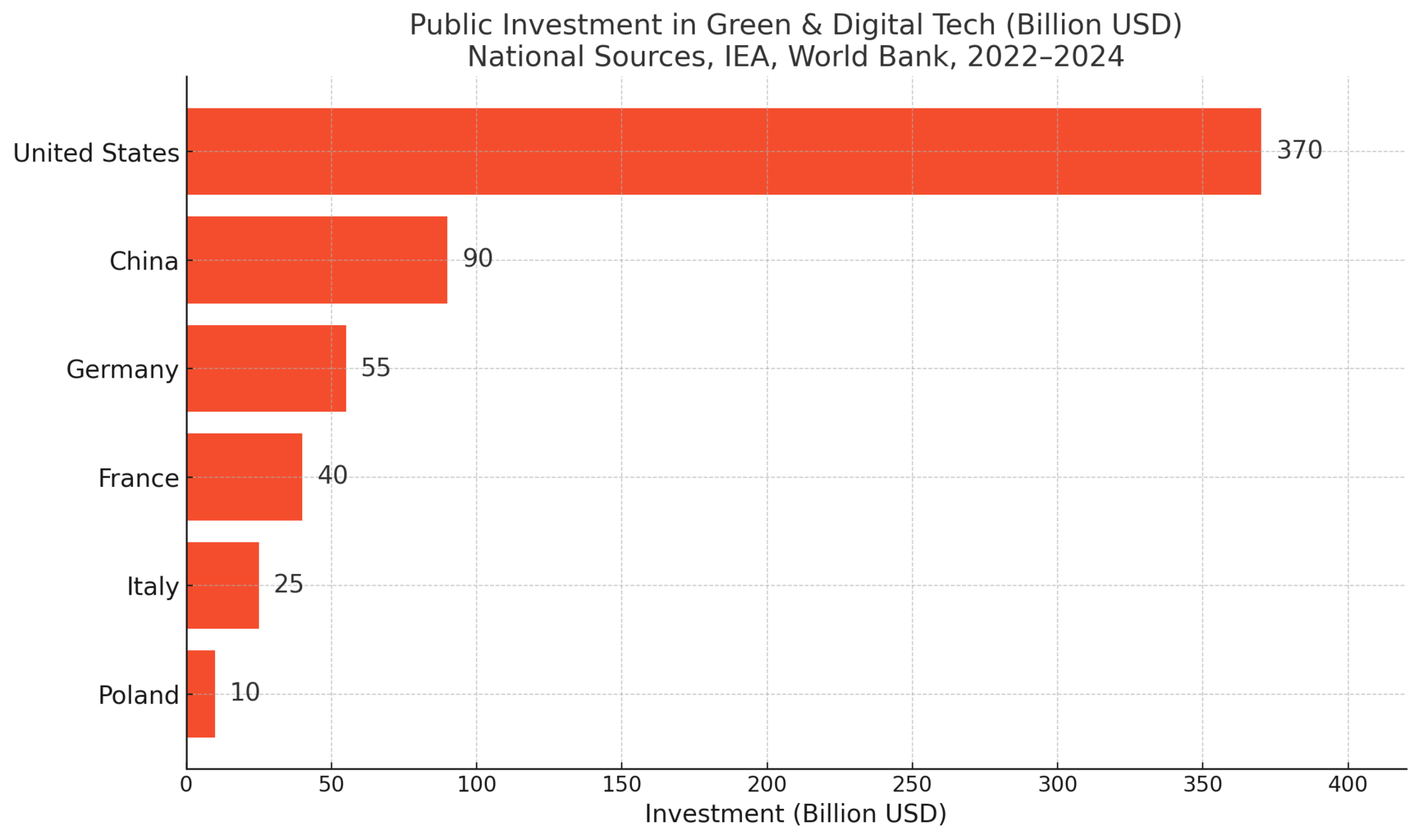- World Population Review Newsletter
- Posts
- Rust to Riches: Countries Rewired for Tech
Rust to Riches: Countries Rewired for Tech
How seven countries are reinventing themselves through tech.
Greetings, curious mind chasing tomorrow’s edge—
The industrial age built empires on coal and steel. Today, power flows through code.
Around the world, countries are racing to reinvent themselves—shaking off rust, chasing relevance, and betting big on tech. Some are surging ahead. Others? Still stuck in yesterday.
This week, we explore seven nations transforming—or failing to—from muscle to microchips. The outcome may shape where you work, invest, live—or thrive.
Let’s dive in.
You Don’t Need to Be Technical. Just Informed
AI isn’t optional anymore—but coding isn’t required.
The AI Report gives business leaders the edge with daily insights, use cases, and implementation guides across ops, sales, and strategy.
Trusted by professionals at Google, OpenAI, and Microsoft.
👉 Get the newsletter and make smarter AI decisions.
South Korea’s post-war miracle began with coal and steel—today, it’s coding and semiconductors. The nation that once depended on shipbuilding and heavy manufacturing now leads in AI, robotics, and biotech.
Take Pangyo Techno Valley, dubbed Korea’s Silicon Valley. Once farmland, it's now a $100B+ cluster of startups and tech giants like Kakao and Naver. Meanwhile, the country is investing over $470 million in quantum tech alone.
The pivot hasn’t been smooth—regions like Pohang still cling to their steel roots—but the national ambition is clear.
🧠 Curious Insight: South Korea produces more patents per capita than the U.S., EU, or China—a proxy for innovation velocity.

Poland’s economic backbone once leaned heavily on coal mining and shipyards. But since the 1990s, it has quietly become a tech engine of Europe.
Kraków and Warsaw are now magnets for software developers, data scientists, and cloud engineers. Multinationals like Google, IBM, and Microsoft run major operations here, and over 500,000 tech professionals now work in the country.
Even former mining towns like Katowice are building digital campuses where smokestacks once stood.
💻 Unexpected Stat: Poland now exports more software services than coal—marking a symbolic and economic turning point.

India’s industrial legacy included textiles, railroads, and manual labor. Today, it’s home to some of the world’s largest tech parks and the third-largest startup ecosystem globally.
Bangalore, once a sleepy garden city, now drives $110B in IT exports. But India’s most surprising transition is rural: villages like Rajgurunagar and Kodambakkam are training thousands in digital skills.
The government’s “Digital India” initiative has brought broadband to over 600,000 villages and aims to train 2 million youth in AI and blockchain.
📡 Interesting Perspective: India now adds more software developers each year than the U.S. has in total.

Germany’s economic foundation—automobiles, coal, chemicals—is facing global disruption. As climate regulations tighten and EVs rise, traditional manufacturing hubs like the Ruhr Valley are scrambling to adapt.
The German government has committed over €50 billion to green tech and digitization, launching initiatives like Gaia-X (an EU alternative to Amazon Web Services).
Berlin and Munich attract AI startups, but towns like Duisburg struggle to replace their coal-based economies.
🔧 Little-Known Detail: Germany’s Mittelstand—family-owned firms—now employ more software engineers than mechanical ones.

Saudi Arabia isn’t transitioning from coal—it’s leaping from oil to AI. With oil prices increasingly volatile and the world shifting green, the Kingdom’s Vision 2030 aims to transform its economy from hydrocarbon-heavy to innovation-driven.
NEOM, a planned $500B smart city, is its most audacious bet: flying taxis, robotic governance, and vertical farms.
But beyond flashy projects, Saudi is funding coding bootcamps, startup accelerators, and blockchain research. Foreign investment in Saudi tech startups doubled in 2023 alone.
🚀 Surprise Move: The government plans to teach coding in every public school by 2027—one of the boldest educational overhauls in the region.

The U.S. is no stranger to industrial reinvention. What began as a nation of mills and mines has evolved into the home of Silicon Valley, biotech hubs, and a defense-tech industrial base.
Yet this evolution is uneven. Cities like Detroit, once auto dynamos, have become case studies in both decay and revival. Now, with the rise of EVs, automation, and AI, Detroit is attracting billions in tech investment again.
Meanwhile, states like Texas and North Carolina are becoming "New Silicon" corridors, mixing affordability with deep talent pools.
🏭 Striking Fact: In 2024, the U.S. passed a milestone: for the first time, more Americans work in tech than in manufacturing.
China’s economic miracle began in sweatshops and steel foundries—but today, it’s investing in semiconductors, AI surveillance, and quantum computing at unparalleled speed.
Shenzhen, once a fishing village, now hosts over 14,000 tech firms. State-led programs like “Made in China 2025” are transforming traditional manufacturing zones into "smart districts."
Local governments often repurpose old factories into innovation labs faster than democratic peers can draft a proposal.
📊 Fascinating Forecast: China aims to control 70% of its chip supply domestically by 2030—up from 20% today.

Coal built empires. Code builds futures.
The nations we explored aren’t just shifting industries—they’re redefining their futures. Some are sprinting toward innovation. Others are anchored to their old ways.
If you’re thinking about where to live, invest, or grow—watch the direction, not the history. Because the winners of tomorrow are coding their advantage today.
Stay sharp. Stay global. Keep reading the signals.
Warm regards,
Shane Fulmer
Founder, WorldPopulationReview.com
P.S. Want to sponsor this newsletter? Reach 127,000+ global-minded readers — click here!

